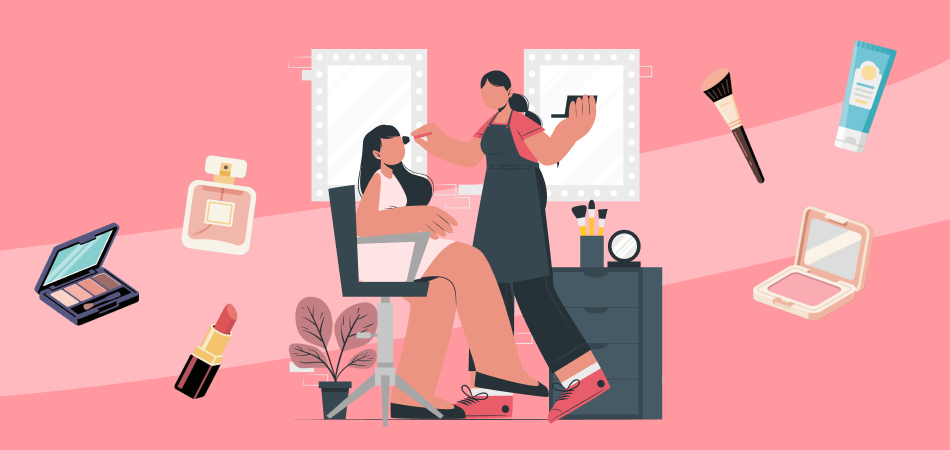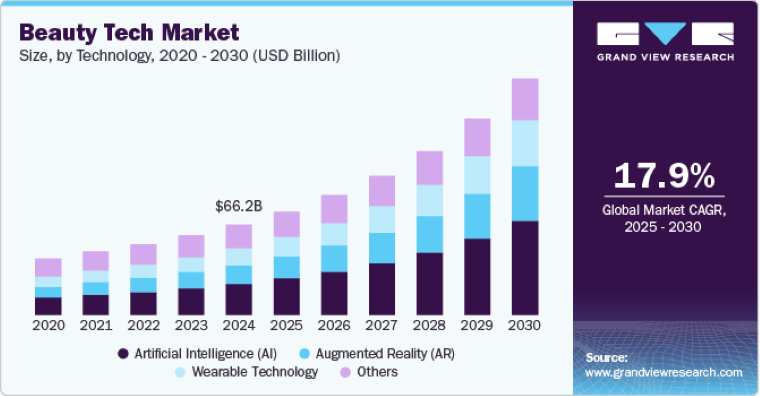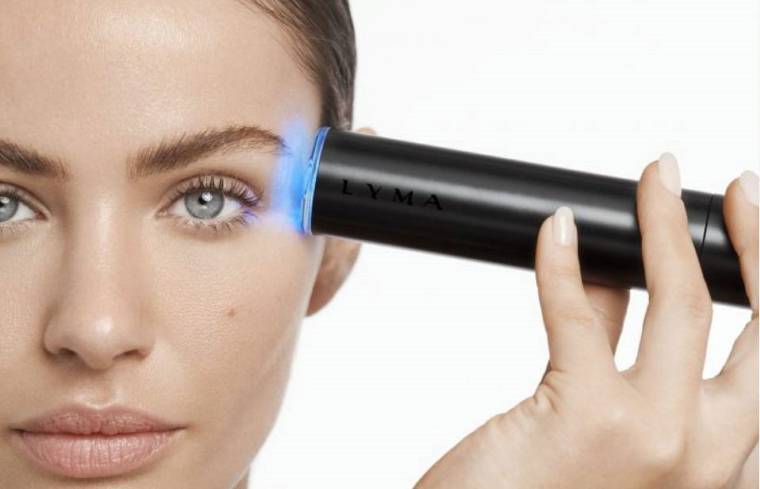What Is Beauty Tech: The Beginner's Guide 2025

From smart mirrors that analyze your skin to AI-driven apps that customize skincare routines, beauty tech is no longer a futuristic fantasy; it's the present and the future. For makeup lovers, entrepreneurs, and tech-curious minds alike, mastering beauty technology is crucial for maintaining a competitive edge.
Read to learn what beauty tech is, the 9 crucial beauty tech trends you need to know, the rise of beautiful AI, and why all of this matters more than ever.
What Is Beauty Tech
Beauty tech fundamentally transforms cosmetic experiences through technological innovation, offering customized solutions across multiple platforms.

|
Find Better Supplier For Products DSers Supplier Optimizer - One click to filter out the most proper suppliers for your products |
- Skincare technology: Devices that scan and treat your skin at home.
- Artificial intelligence analyzes user data to deliver tailored product suggestions.
- Augmented reality enables customers to test cosmetics and hairstyles digitally before purchasing.
- Smart devices: From smart hairbrushes to app-controlled LED face masks.
- Wearable beauty tech: Monitoring hydration, UV exposure, or stress through patches or accessories.
Beauty tech isn't about replacing traditional products, it's about amplifying the experience, making beauty more accessible, personalized, and science-driven. The key drivers behind this surge in beauty tech include:

- Increased demand for personalization
- Growing interest in wellness and preventative care
- The rise of e-commerce and virtual consultations
- Advances in AI, AR, biotech, and smart materials
Beauty tech is not just a niche trend; it’s becoming an essential part of how brands differentiate themselves and how consumers engage with beauty products daily.
9 Crucial Beauty Tech Trends
With these basics covered, let's examine the most influential developments revolutionizing beauty tech this year. These aren’t just futuristic ideas—they’re happening now and reshaping the beauty industry from the inside out.

1. AI-Powered Skincare Diagnostics
Imagine scanning your face with your phone and getting a custom skincare routine built just for you, based on your skin type, texture, hydration levels, and even pollution exposure.
AI-driven diagnostic tools like Perfect Corp’s YouCam, L'Oréal’s Skin Genius, and dozens of emerging startups use machine learning algorithms to analyze your skin’s needs in real time. They recommend tailored products, track changes over time, and even predict future concerns like wrinkles or pigmentation.
Personalization is no longer optional; today’s consumers expect tailored solutions that cater specifically to their individual preferences, needs, and tastes, enhancing their overall experience.
2. Smart Mirrors and Virtual Try-Ons
Smart mirrors aren't just for luxury stores anymore. You can now have one at home that assesses your skin condition daily, suggests makeup looks, and even provides step-by-step tutorials.
In stores, virtual try-ons powered by AR allow shoppers to see how a foundation, lipstick, or even hair color looks before buying, all without touching a single product. Brands leading the way:
- Sephora Virtual Artist
- ModiFace (owned by L'Oréal)
- Revieve's Personalized Beauty Experience
Personalization reduces product returns, increases customer satisfaction, and enhances hygiene and convenience, creating a more enjoyable and efficient shopping experience for consumers.
3. 3D-Printed Makeup and Skincare
Customization is reaching new heights with 3D printing. Brands like Mink have developed portable 3D printers that allow users to print custom makeup at home, from eyeshadows to foundation colors matched perfectly to your skin tone.
In skincare, 3D printing technology is being used to create customized sheet masks that fit your face precisely and deliver targeted ingredients exactly where needed.
On-demand beauty products significantly reduce waste by producing items only as needed, increase personalization to cater to individual preferences, and provide instant gratification, allowing consumers to enjoy immediate results tailored to their unique needs.
4. Beauty Wearables
Wearable beauty tech is booming. Think smart patches that monitor UV exposure, hydration levels, and even stress hormones, then sync the data to an app for real-time recommendations.
Some examples:
- L’Oréal’s UV Sense (UV exposure monitoring)
- My Skin Track pH sensor (skin chemistry monitoring)
- Opte Precision Skincare (spot-correcting device)
Consumers increasingly seek preventative care tools that integrate seamlessly into their daily routines. These tools empower individuals to maintain their health proactively, enhancing overall well-being and making self-care more accessible and sustainable.
5. LED Therapy Devices for At-Home Treatments
Previously reserved for dermatology clinics, LED light therapy is now available for home use. These devices use red, blue, or green light to target concerns like acne, fine lines, hyperpigmentation, and inflammation.
Top devices like Dr. Dennis Gross SpectraLite, CurrentBody LED Masks, and Foreo UFO 2 offer salon-grade results without leaving your home.
DIY beauty treatments are gaining popularity, particularly in a post-pandemic world where self-care at home has become a priority. Consumers value the flexibility, cost-effectiveness, and personalization that these treatments provide, enhancing their overall wellness experience.
6. Biotechnology in Skincare
Beauty tech isn’t just about gadgets; it’s also about biotech-driven ingredients. Companies are using bio-fermentation and lab-grown actives to create sustainable, highly effective skincare solutions.
Here are some examples:
- Epi.Logic and BIOEFFECT using bioengineered growth factors
- Geltor dis eveloping lab-grown collagen
Eco-conscious consumers are increasingly demanding effective products that prioritize ethical sourcing and environmental sustainability. This evolution demonstrates heightened consumer consciousness about purchasing decisions' ecological and social consequences.
7. Sustainable Beauty Innovations
Sustainability is no longer just a buzzword; it's a driving force in beauty tech. Expect to see more eco-friendly innovations, ethical sourcing, and waste-reducing solutions that cater to conscious consumers.
For example:
- Refillable beauty products
- Waterless skincare solutions
- Biodegradable packaging
- Smart devices are designed for longer lifespans and energy efficiency
Brands like L'Occitane, REN Clean Skincare, and By Humankind are leading the way in sustainable beauty tech innovations
Modern shoppers now demand greater corporate responsibility regarding sustainability practices from beauty brands. Tech-driven solutions can effectively address these demands by offering sustainable practices, transparency, and innovative products that align with eco-conscious values, fostering trust and loyalty.
8. Voice Technology in Beauty
Voice-activated technology is expanding beyond smart homes into beauty. Imagine telling your smart mirror, “Show me my skincare progress,” or asking your beauty device for product recommendations.
Voice search is shaping e-commerce behavior, with beauty brands optimizing for voice-based product queries and integrating virtual assistants to enhance customer experience and accessibility.
Accessibility and hands-free functionality are emerging as key differentiators in beauty experiences. These features enhance user convenience, allowing more consumers to engage with beauty products and services effortlessly.
9. Personalized Beauty Subscriptions with AI
Subscription boxes are getting smarter. Companies are leveraging AI to curate monthly beauty boxes based on your preferences, past purchases, climate conditions, and even upcoming skin needs.
Platforms like IPSY Glam Bag and Birchbox are utilizing AI-powered personalization engines to provide hyper-targeted experiences, enhancing customer satisfaction and engagement through tailored product recommendations.
Hyper-personalization enhances customer retention, loyalty, and satisfaction by delivering tailored experiences that meet individual preferences, fostering deeper connections between brands and consumers in the beauty industry.
What Does Beautiful AI Mean
“Beautiful AI” isn’t just a catchy phrase. It’s an emerging concept where artificial intelligence doesn’t just analyze beauty but enhances it in more human-centric ways. Here’s what it includes:
Hyper-Personalization
Hyper-personalization in beauty tech goes beyond simply recommending products based on past purchases. Advanced AI systems learn not only your preferences but also when you need specific items, how environmental factors like weather conditions affect your skin, and how your mood can influence your beauty routine.
This level of understanding transforms the shopping experience from mere customization into true anticipation, allowing brands to deliver products and suggestions precisely when and how you need them.
By leveraging data, brands can create tailored experiences that resonate deeply with individual consumers, enhancing satisfaction and loyalty.
Ethical AI
As AI technology continues to evolve, there's a growing emphasis on ethical considerations in beauty recommendations.
Ethical AI focuses on inclusivity and bias reduction, ensuring that the technology celebrates diverse skin tones, ages, and identities rather than adhering to conventional beauty standards.
Beautiful AI aims to create a more equitable beauty landscape, offering personalized solutions that reflect the richness of human diversity. This approach not only fosters a sense of belonging but also empowers consumers to embrace their unique beauty.
Augmented Creativity
Brands are increasingly harnessing AI to co-create with customers, offering tools that suggest color palettes, product formulations, and even virtual makeup artists.
These innovations enable consumers to design their looks collaboratively, enhancing creativity and engagement.
By integrating AI into the creative process, brands can tap into the collective imagination of their audience, resulting in products that truly resonate with the desires and preferences of their customers. This collaboration not only enriches the consumer experience but also drives innovation in the beauty industry.
Final Words
Beauty tech is not just reshaping how products are created and sold; it’s redefining what beauty means in a hyper-connected world. From AI-driven skincare routines and virtual try-ons to biotech ingredients and sustainable innovations, the future of beauty is smarter, more personal, and more exciting than ever.
Whether you're a brand, a creator, or a consumer, embracing beauty tech means staying ahead in a market that rewards personalization, transparency, and technological sophistication.









 Company
Company
 Why Choose DSers
Why Choose DSers
 Blog
Blog
 Help Center
Help Center




 Live Chat
Live Chat